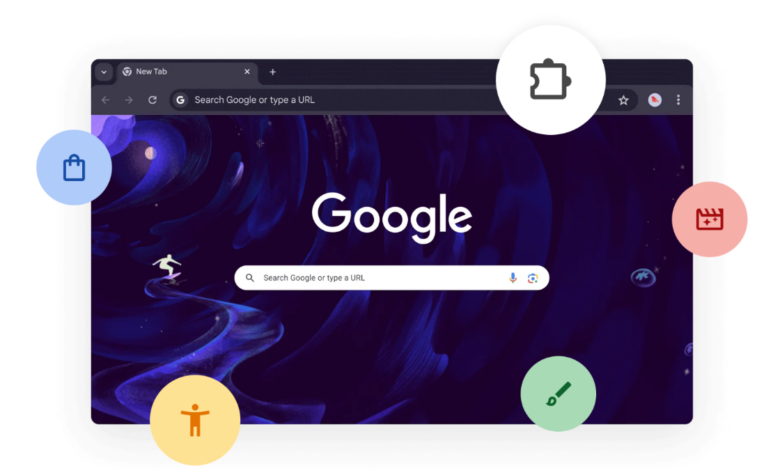Google’s Chrome is worth up to $20 billion if the judge orders its sale

Alphabet’s Chrome browser could fetch as much as $20 billion (approximately Rs. 1,68,762 crore) if a judge agrees to a Justice Department proposal to sell the company, which would be a historic move against one of’ the world’s largest technology companies.
The department will ask the judge, who ruled in August that Google illegally monopolized the search market, to demand measures related to artificial intelligence and the Android smartphone operating system, according to people familiar with the plans.
Antitrust officials, along with states that have joined the case, also plan to recommend Wednesday that federal judge Amit Mehta impose data licensing requirements, said the people, who asked not to be named discussing a confidential matter .
If Mehta accepts the proposals, they have the potential to reshape the online search market and the fast-growing AI industry. The case was filed under the first Trump administration and continued under President Joe Biden. It marks the most aggressive attempt to rein in a tech company since Washington tried unsuccessfully to break up Microsoft. two decades ago.
Owning the world’s most popular web browser is critical to Google’s advertising business. The company can see the activity of logged in users and use that data to more effectively target promotions, which generate the majority of revenue. Google also uses Chrome to direct users to its flagship AI product, Gemini, which has the potential to evolve from a response bot to an assistant that follows users around the web.
Should a sale go through, Chrome would be worth “at least $15 billion (approximately Rs. 1,26,571 crore)-$20 billion (approximately Rs. 1,68,762 crore) given it has over 3 billion monthly active users,” according to Bloomberg Intelligence. analyst Mandeep Singh.
The price potential buyers are willing to pay may depend on their ability to connect Chrome to other services, says Bob O’Donnell of TECHnalysis Research. “It cannot be expressed directly in money,” he said. “It serves as a gateway to other things. It’s not clear how you measure that from a purely revenue-generating perspective.”
Lee-Anne Mulholland, vice president of regulatory affairs at Google, said the Justice Department “continues to push a radical agenda that goes far beyond the legal issues in this case.” She added: “If the government puts its thumb on the scale in these ways, it would harm consumers, developers and America’s technology leadership just when it is needed most.”
The Justice Department declined to comment.
Chrome access
Antitrust enforcers want the judge to order Google to sell Chrome because, as the world’s most used browser, it represents a key entry point through which many people use the search engine, the people said.
The government has the option to decide at a later date whether a Chrome sale is necessary if some of the other aspects of the solution don’t create a more competitive market, the people added. According to StatCounter, a web traffic analysis service, the Chrome browser controls about 61 percent of the market in the US.
Government lawyers have met with dozens of companies over the past three months as they prepared the recommendation. States are still considering adding some proposals and some details could change, the people said.
Antitrust officials backed away from a tougher option that would have forced Google to sell Android, the people said.
Alphabet’s Google Prepares for Antitrust Rigmarole: Legal Outlook
Part of the benefit of Chrome, for which Google doesn’t charge directly, is the convenience it brings to users by making their experience with Google products more seamless, Eric Schmidt, former CEO of Google, told CNBC. “Splitting up these companies will not fundamentally solve the annoyance you have with them.”
Google said in a blog post that if other companies owned Chrome, they wouldn’t have the incentive to invest so heavily in it or keep it free, and would likely have to change its business model.
Google objection
Mehta’s ruling in August that Google violated antitrust laws in both the online search and search text advertising markets followed a 10-week trial last year. The company has announced that it will appeal.
The judge held a two-week hearing in April on the changes Google must make to fix the illegal behavior and plans to issue a final ruling by August 2025.
The agency and states have decided to recommend that Google be required to license the results and data of its popular search engine and give websites more options to prevent their content from being used by Google’s artificial intelligence products, the people said .
Antitrust enforcers plan to propose that Google separate its Android smartphone operating system from its other products, including Search and the Google Play mobile app store, which are now sold as a bundle, the people said. They are also willing to demand that Google share more information with advertisers and give them more control over where their ads appear.
Lawyers for the Justice Department and attorneys general included all of these options in an initial filing in October, as well as a ban on the type of exclusive contracts that were at the center of the case against Google.
If a forced spin-off were to occur, this would also depend on finding an interested buyer. Those who can afford it and might want ownership, such as Amazon.com Inc., also face antitrust scrutiny that could prevent such a megadeal.
“My view is that this is extremely unlikely,” Singh said in an email. But, he added, he could see a buyer like OpenAI, the maker of the artificial intelligence chatbot ChatGPT. “That would give it both a distribution and advertising business to complement its consumer chatbot subscriptions.”
A merger with a US-based AI player could pass government scrutiny more easily than another tech giant, says Evelyn Mitchell-Wolf, digital advertising and media analyst at Emarketer. It “could potentially be adopted by the administration as a way to prioritize AI innovation and America’s posture around AI on the global stage.”
AI overviews
Google now displays artificial intelligence-based answers at the top of search pages, billed as “AI Summaries.” While websites can opt out of Google using their information to create AI models, they cannot afford to opt out of the listings as it risks being ranked lower in search results. making it harder to reach their customers.
Website publishers have complained that the feature dampens traffic and advertising costs because users rarely click through to see the data used to drive those results.
Previously: Google’s AI search gives sites a tough choice: share data or die
As for data licensing, antitrust enforcers plan to propose two options: that Google sell the underlying “click and search data” and also syndicate search results separately, the people said.
The company currently sells syndicated search results, but with restrictions, such as preventing their use on mobile. By forcing Google to syndicate its search results, rival search engines and AI startups could quickly improve their quality, while the data feed would allow others to build their own search index.
© 2024 BloombergLP
(This story has not been edited by NDTV staff and is auto-generated from a syndicated feed.)




